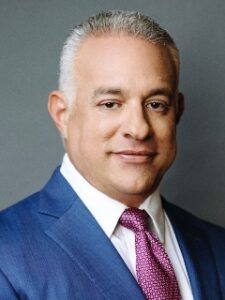A law firm that has made a multibillion-dollar business out of suing auto and liability insurers for Medicare reimbursement payments may have met its match in Florida’s notice-of-intent-to-sue requirements.
A panel of the U.S. 11th Circuit Court of Appeals this week upheld the dismissal of double-damage suits brought by two MSP Recovery companies, finding that the Florida firms had failed to meet basic policy and statutory hurdles.
“The Florida (notice-of-intent) law does not prevent or meaningfully impede the reimbursement of Medicare Advantage Organizations that Congress sought to facilitate,” Chief Judge William Pryor wrote in the Feb. 22 opinion.
One of the defendant insurance carriers in the consolidated suits, Covington Specialty Insurance, had argued that the legal action was barred because Covington’s commercial liability policy required that claims be reported within a year of the accident; United Auto Insurance pointed out that Florida’s no-fault auto law requires plaintiffs to file a notice of intent before initiating litigation.

MSP, headed by south Florida attorney and billionaire John Ruiz, countered that the Medicare Secondary Payer Act allows a three-year claims-filing window and that should preempt the policy’s deadline. The firm’s lawyers argued that federal law also preempts Florida’s notice-of-intent rule.
The federal district court for the Southern District of Florida in 2021 sided with the insurance companies and the 11th Circuit this week affirmed, creating a rare win for insurers in the hundreds of court cases brought by MSP Recovery on behalf of Medicare Advantage organizations.
MSP Recovery, with offices in Coral Gables, has disrupted the auto insurance industry to some degree in recent years by leveraging the federal law that requires private insurers to pay first or to reimburse Medicare when the government program pays in auto accidents and injury claims involving older people. MSP has acted something like a collection agency, going after insurers on behalf of Medicare Part C, or Medicare Advantage firms, those private health insurance groups who administer the federal program for some beneficiaries.
MSP and its affiliate companies, as assignees of the Medicare Advantage firms, have been wildly successful in recovering money from insurers. An article in Forbes magazine last summer quoted Ruiz as saying that his recovery firm was worth almost $33 billion. In January, MSP began doing business as LifeWallet, traded on the NASDAQ stock exchange.
But even a massively well-healed corporation must pay attention to Florida’s notice requirement, the appeals court said. The rule, part of Florida’s no-fault or personal injury protection statute, was expanded in 2021 to require pre-suit notice for all property insurance claims lawsuits.
The rule grants defendants 30 days to cure the deficiency. It’s designed to give insurers time to settle and to give plaintiffs another hurdle to climb, all in order to reduce litigation. The rule has been credited with slowing claims litigation – to some degree. Last summer, NOIs dropped slightly, to 2,986, in July, following a trend for much of 2022, according to CaseGlide, a litigation management software firm that tracks lawsuits.
In the Coventry and United Auto decision this week, a sharp dissent from 11th Circuit Judge Robin Rosenbaum argued that the federal Medicare Recovery act should, in fact, preempt because the Florida law frustrates the act’s purpose.
Rosenbaum explained that before the act was adopted in 1980, if a private insurer and Medicare both covered the same medical expenses, Medicare would often pay the entire amount. The Medicare Secondary Payer Act changed all that, making it the law that Medicare was to pay only after private insurers covered the bills. If a primary payer is slow to pay, Medicare can make conditional payments to the health care provider, and the private insurer should then reimburse the government.
Auto and liability insurers are supposed to be the ones to notify Medicare when they are the primary payer on a claim. If they don’t, the law allows a private right of action by Medicare or Medicare Advantage firms to recover double damages. That’s one reason MSP Recovery has recovered so much in recent years.
“But Florida insurance companies are effectively exempt from this requirement,” Rosenbaum wrote.
In Florida, insurers can wait until Medicare or a Part C company has approached them through a demand letter, then reimburse during Florida’s 30-day cure period without ever fearing double damages, she said. That removes the incentive for private insurers to take charge, and puts the burden back on Medicare to know who the primary payer should be.
“Therefore, Florida private insurers can know that they owe Medicare money but also that they need pay Medicare back if and only if Medicare comes to them,” Rosenbaum’s dissent reads. “And sometimes, Medicare won’t know and will have to absorb the cost. So we are right back where we started before Congress acted: Medicare’s costs will rise. Therefore, Florida’s pre-suit demand requirement ‘frustrates’ Congress’s purpose.”
That frustration of a federal law is one of the grounds that allow the Medicare act to preempt a state law, the judge reasoned.
Attorneys for the insurers in the case could not be reached for comment Thursday.
Was this article valuable?
Here are more articles you may enjoy.



 Insurance Broker Stocks Sink as AI App Sparks Disruption Fears
Insurance Broker Stocks Sink as AI App Sparks Disruption Fears  Florida’s Commercial Clearinghouse Bill Stirring Up Concerns for Brokers, Regulators
Florida’s Commercial Clearinghouse Bill Stirring Up Concerns for Brokers, Regulators  Pipeline Explodes at Delfin LNG Planned Project in Louisiana
Pipeline Explodes at Delfin LNG Planned Project in Louisiana  Insurify Starts App With ChatGPT to Allow Consumers to Shop for Insurance
Insurify Starts App With ChatGPT to Allow Consumers to Shop for Insurance 

